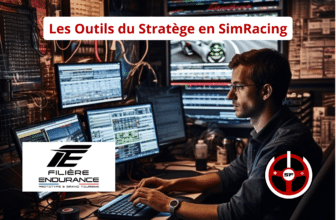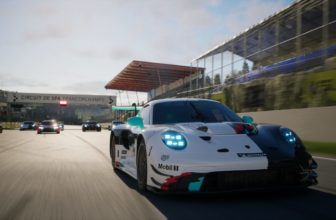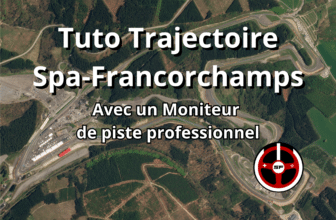
Do you know what an eSport Manager is, and what his or her role is within a Sim Racing team? Although this behind-the-scenes role is often relatively unknown to the general public, it’s absolutely vital at every level! Since 2020, we’ve seen an upsurge in car simulation and official competitions, but it’s also been a turning point that has seen many structures become more professional.
Today, I’d like to invite you to meet the eSport Manager of the Filière Endurance eSport team, Thomas Royer. In this interview, he reveals the daily life of an eSport team manager, the skills required and the challenges to be met!
Hello Thomas, could you briefly introduce yourself to our readers?
I’m Thomas, 25 years old. I joined Filière Endurance eSport at the very beginning, even before the first race. There were selections, and I got in via a friend who was working at Filière Endurance at the time. I passed the selections, took part in the first race and was part of the crew that won the first race. Then, as time went by, I got more involved in the project and found myself managing the eSport section with Mathis. [Mathis, whom you met during our interview last week]
So, what does an eSport Manager do in the team?
In concrete terms, if we were to compare it to a job that everyone knows, it’s a bit like being a company director. You have so many things to do. You’ve got to manage the drivers, you’ve got to manage the race schedules , the trainingsessions… After that, you’ve got to deliver the vehicles, which is a lot of work. Looking for the next races, looking for sponsors. Then there’s the whole communication aspect on the networks. It’s comparable to running a business, but on a smaller scale.
Is it the staff management aspect that takes up most of your time?
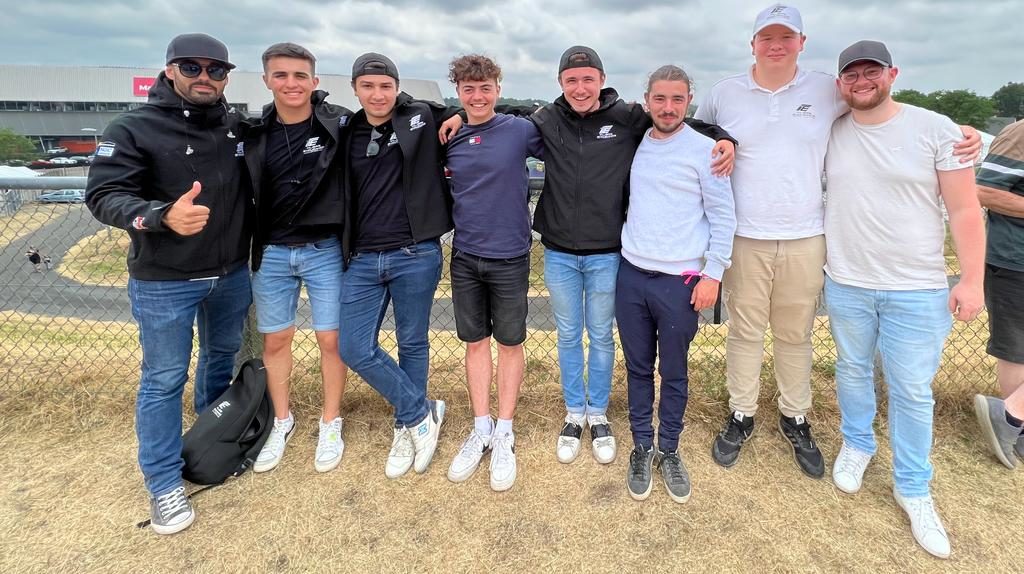
You’d think so, but since we’ve chosen drivers with the same mentality as us, it’s a lot easier. The guys can manage themselves. We don’t have to remind them when they have to go racing, for example, so that already takes a big chunk out of it. On the human side, there’s not much to manage, it’s all done naturally.
When it comes to creating crews for races, you’d think it would be the same people all the time. But no, everyone rotates, and since everyone gets along well, it’s simpler and more natural. Everyone works together for the team. We do a lot of endurance, and teamwork is our leitmotiv. So there’s no choice but to help each other out by working together. In any case, there’s no secret: the harder we work, the more successful we become!
What’s a typical day like for an eSport Team Manager?
If I take a typical day at the moment, 2 to 3 hours a day of management, and there’s an awful lot to manage. It’s not just about logging on to a race, there’s all the paperwork, reminders, communication..
Today there aren’t that many of us (in the Filière Endurance eSport team), we have 14 drivers and we make do with each other’s time. Mathis and I work a lot harder because we set up the team 1 year ago, and what we’ve been able to do motivates us even more. But Mathis and I are used to working like this and it works pretty well. And when it comes to creating events, it doesn’t necessarily take more time, because these are things we prepare for the long term. We organize 1 event every three months, so each time we have 3 months to prepare. And as we create more and more events, we have less and less upstream work to do, because we know how things work and we know how to do things.
How do you choose which events to take part in?
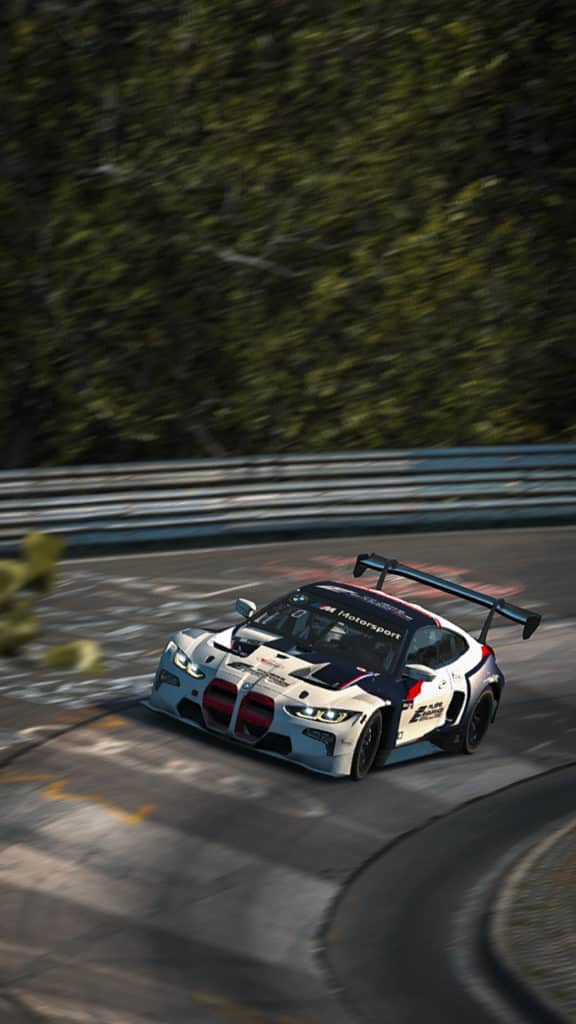
It depends. For example, the main ones are the iRacing events. Take the 24 Hours of Daytona for example, which is a week before the actual race. These kinds of races are official races on iRacing. So there are 8 a year. And then there are the 6-hour championship races on iRacing. But at the moment, this 6-hour championship has been transformed into a 24-hour championship.
That means a 24-hour race every two weeks, which is a bit more complicated to manage, but with 14 drivers, we manage to have at least one car in each event. And maybe in the end we’ll be able to go for a world podium.
After that, there are also races organized by the community. These are not imposed on the drivers; they go on their own. Because it’s still eSport, we have a life on the side, so we don’t impose anything. If there are races outside our objectives and they want to do them, they do them. And if they don’t want to do it, they don’t.
Are all your races currently run on iRacing?
Yes, that’s where the community is… Well, I think Assetto has the biggest community on their game today, but iRacing is the one that gets the most people talking. For professional racing, that’s where it’s at. There’s less of a community, but a lot more visibility.
Do you have any specific objectives in mind before an event?
Not on the races. Of course, we’re always aiming for the best result, but we can’t really set ourselves a target because it doesn’t just depend on us. Today, it’s still “just” simracing, and there can be bugs, computer problems or even problems with opponents.
We can’t hide the fact that it’s a bit complicated with the other drivers, so we can’t set ourselves any targets. We tell ourselves that we’ve worked hard for it and that if there are no problems, we’ll go for as high a place as possible. It’s impossible to leave thinking “we’ve got to win”.
As eSport Manager, is it important for you to choose drivers who play fair?
Yes, it’s a priority ! Today, there isn’t a single person in the team who leaves thinking that we’ve got to win because we’ve trained for 10 hours. Because that’s the opposite of our values at Filière Endurance. And if you go into a race telling yourself you absolutely have to win, something’s bound to happen. You’re going to want to go for the limit all the time, and that’s not at all the mentality of endurance racing today.
Endurance is all about finding the right balance between speed and, above all, staying calm. After that, there are events that you can’t handle, and that’s where you sometimes need to have a good mental attitude if you don’t want to flinch.
What about your training and goals?
The priority is obviously to improve. We’re going to train before a race to be as fast as possible. But above all, our training sessions are there to teach drivers how to handle certain situations in traffic or during a race. But also on setup ! Because when we set out on a race, we don’t have a ready-made setup. We do our own setup.
For example, right now we’re going to do the 24 Hours of Monza. So we prepare ourselves and everyone gives their feedback on the setup. And with that, we’ll make sure the car suits everyone. Training is all about getting feedback and improving to be as close as possible at each race.
OK, I can see that different teams handle setups in different ways!
In fact, today’s professional drivers don’t do their own setups. The engineer will do the setup and then the driver has to acclimatize to the setup. So the engineers have tricks to make it faster, and it’s up to the driver to adapt. They have no choice. That’s not how we work at all. What’s more, we can’t force the guys to acclimatize to a setup, as they have their own lives to lead. We don’t live and breathe simracing, and we don’t spend 8 hours a day on the simu.
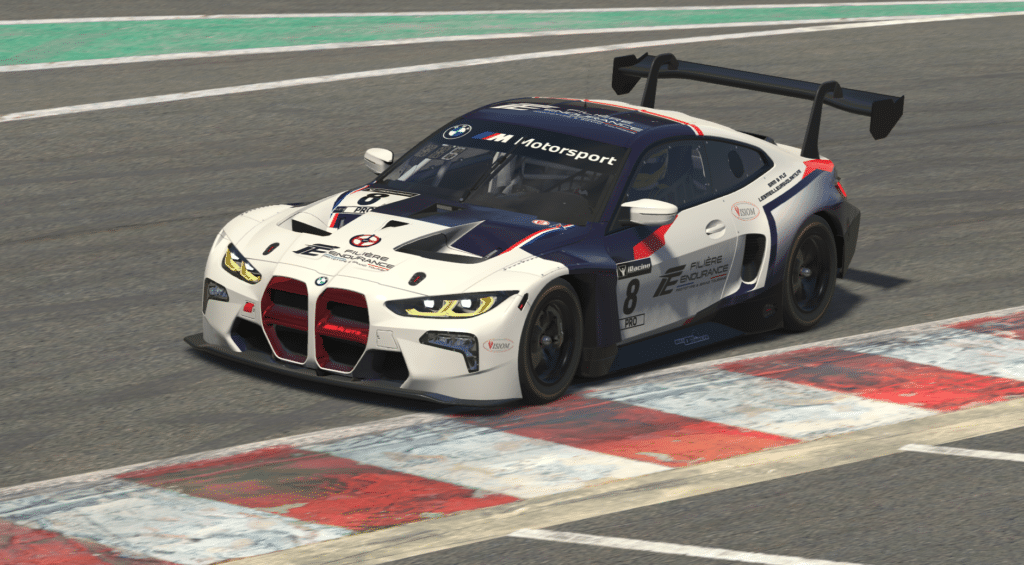
And the thing is, you end up driving a car you don’t understand, and I think that’s complicated. Because if you don’t understand what you’re driving, it’s hard to improve. Then there’s telemetry, which we work with a lot… But personally, I’d be a bit embarrassed to drive a setup I didn’t understand. Even so, I have to admit that this technique has already proved its worth.
Getting back to your role as eSport Manager, how do you go about managing sponsors?
Initially, we tried to find local companies around Le Mans. That was the easiest thing to do, because that’s where the Filière Endurance comes from. Then we looked for small simracing companies that aren’t necessarily very well known. That’s happening more and more via Linked’In.
What we’re looking for is people we can grow with and learn from. Nor are we looking for sponsors who simply give us money – that’s not my vision of sponsorship either. It’s also important for sponsors to know what they’re investing in and why. If they’re passionate about it, that’s even better, and it’s easier to work together. That’s why we want sponsors who can teach us things and who can help us on certain points.
What is the number one skill for an eSport Manager?
People. It’s like in a company, if you feel good where you’re working, it’s much easier to move forward. And that’s what Mathis and I immediately set out to achieve. I don’t want to get too far ahead of myself, but I think everyone feels good at Filière Endurance eSport and that we made the right choice.
When we started, there were 5 of us and we started recruiting in October/November 2022. And we had the choice of either taking fast drivers who weren’t necessarily in our frame of mind. Or to take on drivers who might not be as fast, but who had the mentality we were looking for. We chose the second option, and it’s working.
For example, we’ve even got Léo , who’s entered the eSport Channel and is even moving up to the Endurance Channel in a Mitjet. Through esport we’ve managed to get him to switch to the real thing. I think that’s really cool, because that’s exactly the curriculum Jean-Bernard Bouvet [founder of Filière Endurance and a real-life endurance racer] wanted to set up, and we’ve already managed to do it with one person!
What aspect of your job as eSport Manager gives you the most pleasure?
What I like most is the fact that we’ve started from scratch and built up a good structure. Even if there’s still a lot of work to do. You see, we’re constantly evolving, so that keeps us motivated to do more. That’s my main motivation. And as we manage to win big races, everyone works even harder to reach even higher levels. What I like is that everyone pulls in the same direction!
What can we wish you for the coming year?

That things continue to go well. Then what we’d like to do is continue to find sponsors, because we’ve got plans for the end of the year. First of all, we’d like to bring all the drivers together to strengthen our ties even more. But to do that, we need sponsors and we need to get things up and running!
Many thanks to Thomas!
Thanks to Thomas and the whole Filière Endurance team. I hope you now have a clearer picture of the position of eSport Manager. It’s a key role, extremely rich, about which we could talk for hours. If you want to discover even more key roles in the world of eSport and SimRacing, stick around! More interviews coming soon.
And if you haven’t heard of Filière Endurance yet, I urge you to read the interview with Mathis Poulet, real-life driver and head of the eSport division.
Last but not least, don’t hesitate to ask any questions you may have in the comments, as I’ll be happy to answer them when we meet again! See you below😉




